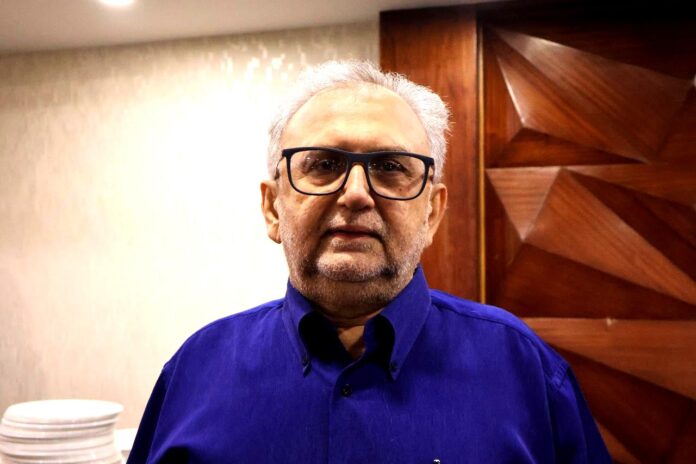Prominent businessman calls for water, power, and permit stability before cruise terminals and skylines
Sri Vijaya Puram, May 31: As New Delhi accelerates its push to transform the Andaman and Nicobar Islands into a maritime and tourism hub, prominent businessman Mohamed Jadwet has urged policymakers to shift focus to core infrastructure gaps, namely electricity, water supply, and permit turnaround times.
“We’re telling young people to build the future here, but they’re stuck chasing tanker water and buying backup generators,” Jadwet told The Wave Andaman. “You can’t run a modern economy on candlelight and contingency plans.”
Mohamed Hashim Jadwet, 61, is director and managing partner of the Jadwet Group, among the archipelago’s oldest business houses. Born in Motavaracha, Surat, he grew up in Port Blair (Presently known as Sri Vijaya Puram) and Kolkata, earning a commerce degree from Calcutta University and training with B. M. Chatrath & Co. Chartered Accountants. He joined the family enterprise, rooted in pre-Independence Burma-Nicobar trade, and steered it into shipping, logistics and tourism, launching the Makruzz high-speed catamaran service in 2009. Jadwet led the Andaman Chamber of Commerce for a decade, heads the local cricket body, and is known for Rotary work and tsunami-relief efforts.
While the Centre promotes high-visibility projects like cruise terminals, underwater power links, and a Marina Bay-style skyline at North Bay, Jadwet believes these proposals overlook more immediate operational challenges.
“Taps are dry. Street lights flicker. Start-ups are spending more time fixing infrastructure gaps than scaling ideas,” he said. “It’s like asking people to sprint in ankle-deep water.”
Across the islands, water treatment plants are frequently out of order for maintenance, forcing residents to queue with jerry cans. Hotels tow gensets from the mainland at great cost. Entrepreneurs face delays in shipping, corroded hardware, patchy broadband, and unclear regulatory processes.
To address these persistent constraints, Jadwet is proposing a tri-party task force involving the administration, private sector, and environmental scientists. The group, he says, should set measurable targets for utility uptime, water supply, and permit approvals.
“This is not about asking for subsidies. It’s about making systems reliable,” he said. “Once you do that, the private sector will take care of innovation, logistics, and scale. The potential of the islands remains unmeasured and untapped.”
Jadwet maintains that environmental rules must remain strong and clear, calling them non-negotiable given the region’s ecological sensitivity. But he warns that sluggish bureaucracy and indecision are undermining the very investor confidence the government hopes to build.
“These delays are not about protecting nature. They’re about files bouncing between desks with no accountability.”
His comments have resonated with a growing number of local entrepreneurs, many of whom say they are forced to delay or downsize ventures due to infrastructure and approval hurdles. Some have shifted operations to the mainland. Others are in wait-and-watch mode.
“This is not about rejecting growth,” Jadwet added. “It’s about sequencing it correctly. Fix the wiring before you promise the skyline.”





